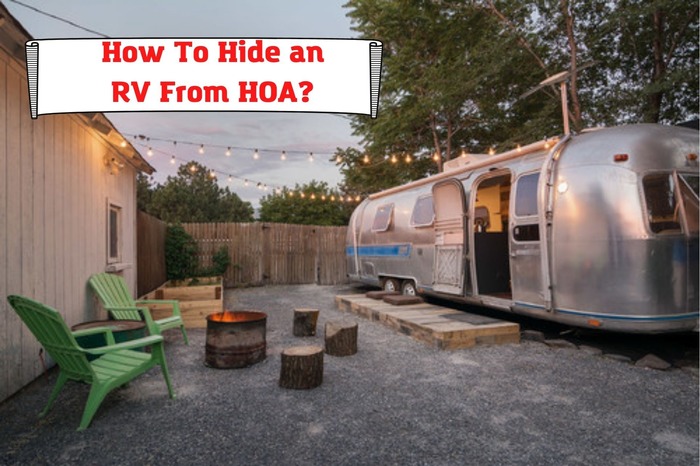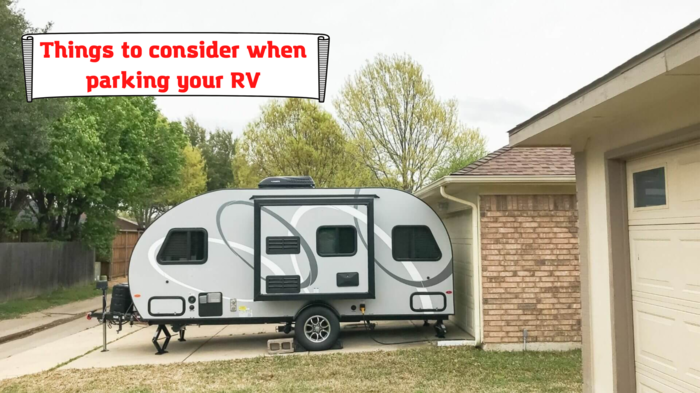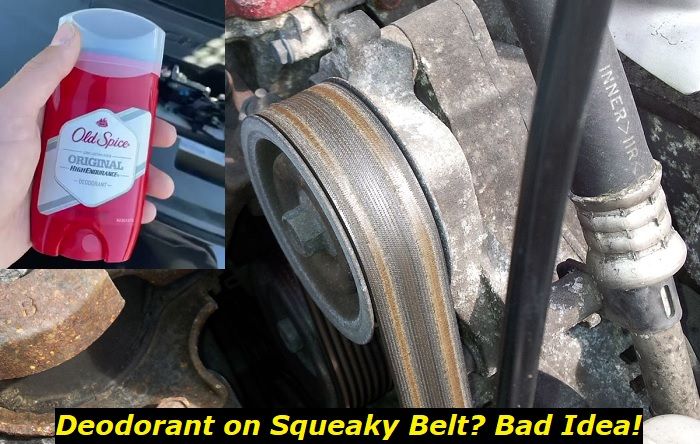
Keeping your RV vehicle near your house can cause some slight problems depending on the size of your driveway and your parking lot. Although you might have the legal right to keep your RV vehicle in the driveway it might not be so appealing to your eyes and might also obstruct other vehicles from parking in the same place. Most RV vehicles are over 7 feet tall with some of them reaching as high as 13 feet or even more if you're considering the height of the air conditioner. Hiding most RV vehicles will not be possible behind a 6-foot fence and a lot of laws that prohibit having fences of over 8 feet will also not allow you to hide your RV behind tall fences.
The Homeowners Association has a lot of rules and regulations as to parking recreational vehicles on private property. Because of these rules, parking your RV at home might be a challenge so it is important that you ask questions concerning these regulations before getting yourself one.
In this article, we are going to be talking about:
- How to hide an RV from HOA
- Things to consider when parking your RV
So, what can you do to make your RV stay concealed when you park it in your backyard?
Some things you should consider
First, you will need to consult with your HOA regarding the rules of parking recreational vehicles near houses in your area. Also, make sure you look through the regulations and laws of your state to prevent any offenses and fines.
Then, you should consider whether you have some place to put your RV near the house. Sometimes it will really look ugly because the RV will just take all the vacant place in front of your home. This way, you won’t like the idea of parking the big vehicle there.
You may consider taking your RV to a commercial parking lot where you will pay a certain fee for keeping your vehicle for most of the time. This makes sense as your vehicle will be safe and secure without any additional effort from your side.
If you still want to park the RV near your house, but your HOA says it’s illegal, you will need to build a garage suitable for parking your vehicle. This may be a very expensive solution, though.
But sometimes HOAs aren’t that unfriendly with homeowners, so you can get a deal with them to park your RV in your backyard but in such a way that no one could see the vehicle. Although this agreement will be mostly oral, it will work well until the HOA’s management changes. Here, we’ll provide some ideas of how to hide your RV if you have such an agreement with your HOA. Please bear in mind that unless you have such an agreement, trying to hide your RV may be a very bad idea that can lead to some fines and other problems.
Build a cover over the RV
One of the best ways to protect your RV is the construction of a roof over where you park the RV in the backyard. Think of it as a mini house. Putting your RV under a roof will stop snow, ice, rain, and sun from damaging the RV. Also, this will hide the big vehicle from people and no one will complain.
Create an outdoor entertainment space whenever your RV is not parked
You can always construct a beam structure that would fit the size of your RV. Or you could make the RV space into a screen room or an additional car garage. This will make people and probably the HOA believe that you use that room for entertainment purposes alone and would keep eyes off your RV vehicle. This is an excellent method to use whenever your RV vehicle is not parked in the constructed house.
Build a fence around the RV
Although you might have a fence that surrounds your backyard and your compound, you might still decide to build another fence to make sure your RV is out of sight from other people. Building fence panels can help you conceal your RV extremely well and also serve as an obstruction against anyone who might damage your RV. Of course, nobody would like their RV to get damaged by a stray football.
Arrange potted plants or plant foliage around the RV
There are many options for this: grasses, flowers, ornamental trees, and shrubs can serve as a means of distraction, helping you hide your RV properly because other people will be focused on those plants. An added advantage is that these plants can be moved out of the way whenever you want to drive your RV. Doing this will just give you the feel of a beautiful mini-garden fence which people might just smile at as they walk by.
Use a tarp over the RV
Tarping your RV can help you conceal it in so many ways but using tarpaulin alone might not be effective due to the size of the vehicle. Because of this, you could always add decoys like bricks, cans, or even hardware tools by leaning them against the RV and allowing some parts of them to stick out, giving others the impression that you are covering up hardware tools and not a vehicle.
Things to consider when parking your RV

Well, it’s not only about hiding the vehicle from HOA inspections, but it’s all about making comfort for your neighbors. If your RV doesn’t disturb your neighbors and other people living and visiting your area, you will probably avoid any problems with HOA and complaints. But if your RV stands right in front of a neighbor’s window covering all the sunlight, you are in trouble.
Here, we’ll give some advice and outline some really important things you should consider when parking your RV near your house.
Avoid obstructing your neighbors’ views
If you park your RV in a way that obstructs the views of the neighbor, they would most likely complain and contact the HOA. You don’t want this, so the first thing to consider is to talk to your neighbor who might be affected by the fact that you park your big vehicle near your house. Find some solution to parking the RV in such a way that it doesn’t disturb anyone and doesn’t change the way your neighbors live.
Do not park too close to public sidewalks
Parking your RV in a way that will block public sidewalks will not only cause safety issues but also conflict with your neighbors. What’s more, you can get fines once the police officers drive through your area. Blocking sidewalks is illegal in most places, so you want your big vehicle to hide properly and not become an obstruction for people walking around. If it interferes with someone, it’s only a matter of time when some person calls the police or contacts the HOA.
Keep appearances in mind
Fences, a privacy screen, or any other thing that can help you hide your vehicle and also beautify your neighborhood would be an excellent idea. If you put the effort into hiding your RV so that it looks really good, your HOA may agree to let your park it there. Think about beautiful covers or look for tall decorative trees that can form a live fence around your RV. But don’t forget that your parking place for the vehicle should be practical. You don’t want to spend a couple of hours trying to take your RV from the parking place.
Conclusion
Your HOA is most likely to oppose the idea to park RVs near homes in residential areas. But you have some chances to avoid fines and problems just by being creative. First, speak to your HOA, then speak to your neighbors. If no one is in strict opposition to your idea, then you may find a decent parking place for your vehicle and forget about any problems.
If your HOA is in opposition to RVs parked near houses, you may build a garage or just find a certain parking spot in your area. Yes, you will pay some money for parking there, but you won’t offend the law and the rules of your HOA which is important. Bear in mind, you should always consider what your neighbors think about your idea to park the RV near your house.
About the authors
The CarAraC research team is composed of seasoned auto mechanics and automotive industry professionals, including individuals with advanced degrees and certifications in their field. Our team members boast prestigious credentials, reflecting their extensive knowledge and skills. These qualifications include: IMI: Institute of the Motor Industry, ASE-Certified Master Automobile Technicians; Coventry University, Graduate of MA in Automotive Journalism; Politecnico di Torino, Italy, MS Automotive Engineering; Ss. Cyril and Methodius University in Skopje, Mechanical University in Skopje; TOC Automotive College; DHA Suffa University, Department of Mechanical Engineering






Add comment